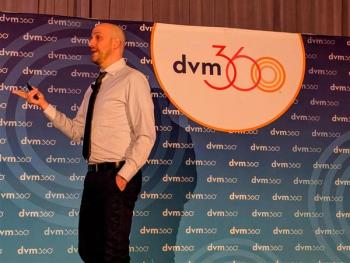
FDA shows commitment to animal and veterinary innovation
Recent agency announcements demonstrate continued progress towards objectives in its Animal and Veterinary Innovation Agenda
The FDA’s Center for Veterinary Medicine (CVM) announced the establishment of 4 Animal and Veterinary Innovation Centers (AVICs), which will further the goals outlined in the FDA’s Animal and Veterinary Innovation Agenda (AVIA), released in September 2023.1,2 The AVICs will receive funding for work towards the advancement of regulatory science and further development of innovative products, as well as approaches to support animal health and veterinary interventions.1
The AVICs will focus on 3 main areas of concentration, as follows1:
- Highly pathogenic avian influenza (HPAI) in addition to other zoonotic diseases or One Health related issues.
- Intentional genomic alterations (IGAs) in animals as well as the advancement of regulatory science in veterinary medicine. There will be specific interest in IGAs supporting agricultural resilience, food security, animal health, or public health.
- Unmet veterinary medical needs in minor and major species that create significant burdens in animal or public health.
Partnerships for the FDA were selected through a competitive cooperative agreement process that looked to establish AVICs and address critical animal, human, or environmental health needs that aligned with the priorities outlined in the AVIA.1 Funding for the centers is renewable for up to 4 years, progress and availability of funds pending, and the agency’s
The 4 AVICs that will receive funding in the partnerships are as follows1:
- University of Wisconsin-Madison: Funds will be allocated to the support of HPAI research. Their approach involves genetically targeting pro-viral host factors, antiviral proteins, or viral proteins, exploring the development of genome-edited chickens as a method to reduce susceptibility or provide resistance to the virus, and others like it.
- University of California, Davis: Funding will go towards research on IGAs in major livestock species, working to advance gene editing technologies in food animals. The University will generate and share phenotypic and bioinformatic data in support of a scientific approach to IGA regulation in food animals.
- Kansas State University: The funds will be used to build models for evaluating the efficacy of analgesics in food animals, including pigs, goats, and cattle, in support of new drug approvals. The work looks to support pain relief in food animals for painful diseases or surgical pain.
- University of Arkansas: The University will use the funding to support their research on the infectivity and formation of cyst-like Histomonas meleagridis—the causative agent of blackhead disease in turkeys—in vitro and in vivo. Researchers also aim to identify the cellular pathways that mediate encystation in H. meleagridis and analyze potent inhibitors against encystation of H. meleagridis in vitro and in vivo.
Reagan-Udall Foundation for the FDA
In a continuation of progress towards the implementation of the AVIA, the FDA announced support for a collaboration agreement to the Reagan-Udall Foundation for the FDA. The foundation plans to conduct an analysis of strengths, weaknesses, opportunities, and threats (SWOT) for the animal health, animal food, and veterinary industries. The SWOT analysis aims to establish a record of the challenges and unmet needs within the industries and determine the economic impact of the points.3
The foundation has established a panel of experts to conduct the formal analysis, the results of which the FDA will use to identify areas where new or adapted regulatory approaches could be beneficial. Lisa A. Tell, DVM, DACZM, DABVP (Avian), is chair of the expert panel. The panel is made up of 8 industry professionals.5 The analysis will also consider how the animal health sectors integrate with One Health. The panel projects to complete their analysis, and publicly release their results, in the second quarter of 2025.5
The Animal and Veterinary Innovation Agenda (AVIA)
In September 2023, the
Objective 1: Support technologies and products that address high-priority needs
Objective 2: Align regulatory pathways to the modern landscape
Objective 3: Enhance our One Health workforce for the future of innovation
Objective 4: Identify and address gaps specific to new technologies and emerging health threats
With the most recent announcements, the FDA continues to support the goals they outlined for themselves 1 year ago, enhancing their approach and support of innovation in veterinary medicine, according to the agency.
References
- FDA announces Animal and Veterinary Innovation Centers partnerships. US Food and Drug Administration. September 18, 2024. Accessed September 18, 2024.
https://www.fda.gov/animal-veterinary/cvm-updates/fda-announces-animal-and-veterinary-innovation-centers-partnerships - Animal and Veterinary Innovation Agenda. US Food and Drug Administration Center for Veterinary Medicine. September 2023. Accessed September 18, 2024.
- Reagan-Udall Foundation to research challenges in animal and veterinary industries. US Food and Drug Administration. September 18, 2024. Accessed September 18, 2024.
https://www.fda.gov/animal-veterinary/cvm-updates/reagan-udall-foundation-research-challenges-animal-and-veterinary-industries - McCafferty C. FDA releases Animal and Veterinary Innovation Agenda. dvm360. September 18, 2023. Accessed September 18, 2024.
https://www.dvm360.com/view/fda-releases-animal-and-veterinary-innovation-agenda - Addressing unmet need within the animal and veterinary industries. Reagan-Udall Foundation for the Food and Drug Administration. Accessed September 18, 2024.
https://reaganudall.org/addressing-unmet-need-within-animal-and-veterinary-industries
Newsletter
From exam room tips to practice management insights, get trusted veterinary news delivered straight to your inbox—subscribe to dvm360.






